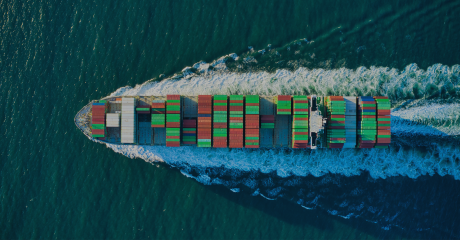What is a state-owned enterprise?
A state-owned enterprise (SOE) is a legal entity created by a government for the purpose of engaging in commercial activity on the government’s behalf. SOEs can be owned wholly or in part by the government and are common throughout the world. In the United States, Amtrak, the U.S. Postal Service, and federal mortgage corporations Fannie Mae and Freddie Mac are all examples of state-owned enterprises.
SOEs offer a number of advantages, chief among them the ability to generate profits for the government and exercise control over key economic sectors, such as utilities and natural resources. Because of these direct benefits to the operating government, doing business with SOEs in adversarial jurisdictions poses regulatory risk to U.S. exporters.
<< Watch the masterclass: mapping Chinese SOEs using public records >>
Why are state-owned enterprises important?
In China, state-owned enterprises have a high probability of being linked to military end use. China’s policy of military-civil fusion, established by Beijing in 2015, explicitly leverages the private sector to advance China’s military technology.
In the interest of national security, the United States government has restricted trade and transactions in publicly traded securities with Chinese military companies, publishing several lists of Chinese companies involved in aiding China’s defense sector. These lists include:
- Section 1237 List, issued by the Department of Defense
- Section 1260H List, issued by the Department of Defense
- Non-SDN Chinese Military Industrial Complex Companies List (NS-CMIC), issued by the Department of the Treasury
- Military End User List, issued by the Department of Commerce Bureau of Industry and Security (BIS)
China’s state-owned enterprises are managed by the State-owned Assets Supervision and Administration Commission of the State Council (SASAC). SASAC reported that total revenue for centrally administered SOEs rose to 39.6 trillion yuan, a third of the country’s overall GDP for the year. In addition to the central government’s SASAC, however, there are thousands of regional SASACs, each controlling additional SOEs.
Although they may not explicitly operate in the defense sector, China’s state-owned companies have a high probability of being linked to one or more of the military companies designated by the U.S. government. U.S. exporters — particularly those trading in dual-use goods, sensitive technologies, or highly regulated sectors — must therefore be vigilant in screening distributors, resellers, and other third parties for Chinese SOEs.
<< Learn four techniques for identifying Chinese military companies in your trade networks >>
State-owned enterprises in China
The list below is a sampling of major SOEs in China.
- China National Salt Industry Corporation (CNSIC)
- China National Gold Group Co Ltd (China Gold)
- China Eastern Air Holding Company (CEAH)
- Aluminum Corporation of China (CHINALCO)
- China Three Gorges Corporation (CTG)
- State Grid Corporation of China (SGCC)
- China Railway Group Limited (CRG)
- China Southern Power Grid (CSG)
- China Huaneng Group (CHNG)
- China First Heavy Industries (CFHI)
- China National Chemical Corporation (ChemChina)
- Nam Kwong (Group) Company Limited
- China National Administration of Coal Geology (CNACG)
- China Electronic Technology Group Corporation (CETC)
- China Communications Construction Company Limited (CCCC)
How can I efficiently screen my trade counterparties?
Compliance professionals can use public records to identify Chinese state-owned enterprises and military companies. Where this information is not readily available through Chinese corporate registries, it can often be gleaned from third-country registries.
Trusted by regulators in the U.S. Departments of State, Homeland Security, Defense, and others, Sayari collates official public records from more than 250 jurisdictions worldwide to create precomputed cross-border corporate networks, layering these with trade data, regulatory watchlists
- Screen thousands of trade counterparties at a time and be automatically notified of changes in their risk profiles
- Tailor searches to your exact requirements with filters based on risk type, jurisdiction, trade details, and distance-to-risk
- Leverage precomputed risk factors related to export controls, including exports to SOEs
- Easily view ultimate beneficial ownership information and access the verifying source record from directly within the platform
Want to try out Sayari Graph firsthand to support your export control compliance? Book a personalized demo to begin screening for Chinese state-owned enterprises today.



